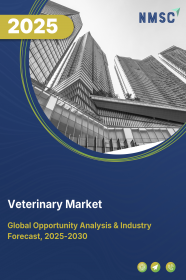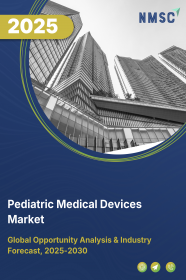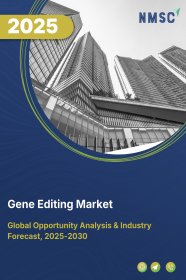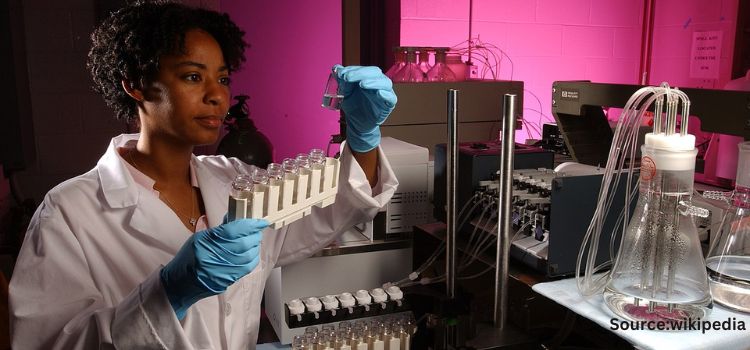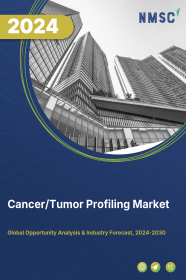
Cancer/Tumor Profiling Market by Technology (Immunoassay, Next-generation Sequencing (NGS), Insitu Hybridization, Mass, Spectrometry, PCR, Microarray, and Others) by Biomarker Type (Genomic Biomarkers, and Protein Biomarkers), Cancer Type (Breast Cancer, Lung Cancer, Colorectal Cancer, and Others), and by Application (Research Application and Clinical Application) – Global Opportunity Analysis and Industry Forecast, 2024–2030
Industry: Healthcare | Publish Date: 27-Nov-2024 | No of Pages: 365 | No. of Tables: 275 | No. of Figures: 220 | Format: PDF | Report Code : HC105
Market Definition
The Cancer /Tumor Profiling Market size was valued at USD 11.75 billion in 2023 and is predicted to reach USD 26.57 billion by 2030, with a CAGR of 12.4% from 2024 to 2030.
The Cancer/Tumor Profiling Market refers to the sector of the healthcare industry dedicated to the comprehensive analysis of genetic and molecular characteristics within cancer or tumor tissues. It involves the development, manufacturing, and distribution of technologies, tools, and services aimed at scrutinizing the unique genomics of tumors. It employs techniques such as next-generation sequencing (NGS) and other molecular diagnostic approaches, the Cancer or Tumor Profiling Market plays a pivotal role in providing crucial insights into the genetic mutations, alterations, and molecular features of cancer cells. The information derived from this profiling is instrumental in individualized diagnosis, treatment planning, and the development of targeted therapies, thus contributing to the advancement of personalized medicine in oncology. The market continually evolves with technological advancements and research, offering innovative solutions for understanding and addressing the complexities of various types of cancer.
The surging incidence of cancer worldwide drives market growth
The surge in cancer occurrences on a global scale, attributed to factors such as malnutrition and unhealthy lifestyles, is a driving force behind the market expansion. As an example, the World Health Organization (WHO) in February 2022, declared cancer as a leading global cause of death, with approximately 10 million fatalities recorded in 2020.
Furthermore, the escalating prevalence of human papillomavirus (HPV), a major contributor to cervical cancer, amplifies the demand for interventions. As of February 2022, the WHO reported cervical cancer as the fourth most prevalent cancer in women, registering about 604,000 new cases and 342,000 deaths globally in 2020. This upswing in cancer cases underscores the significance of advanced diagnostic tools that include tumor profiling in comprehensively understanding and treating the evolving landscape of cancer. The need for precision medicine and personalized treatment plans becomes increasingly critical in addressing the diverse genetic of tumors, thereby aligning with the broader trends in the Cancer or Tumor Profiling market.
Rising initiatives by government and international organizations
The market growth in the Cancer/Tumor Profiling sector is significantly propelled by the increasing commitment and initiatives from both government bodies and international organizations in the global fight against cancer. An illustrative example is the 'HPV VAX NOW' campaign initiated by the U.S. Department of Health and Human Services (HHS) on Women's Health (OWH) in July 2021. This campaign seeks to elevate HPV vaccination rates among young adults aged 18 to 26. By raising awareness about the risks of HPV-related cancers and emphasizing the protective benefits of HPV vaccines, such initiatives contribute to the demand for advanced cancer profiling technologies that aid in personalized treatment strategies.
Moreover, the government of Australia invested $15 million in the Australian Centre for Targeted Therapeutics (ACTT) to advance the development of next-generation medicines for treating various cancers. The investment focuses on pioneering "protein degrader" technology which aligns with the broader goals of the cancer or tumor profiling market, aiming for more effective and targeted cancer treatments with minimized side effects.
Additionally, the UK invested USD 32 million under the Biomedical Catalyst (BMC) program which underscores the commitment to advance life-changing cancer therapeutics. The allocated funds have been directed toward innovative projects in immuno-oncology and pediatric cancers, emphasizing the pivotal role of Cancer or Tumor Profiling in shaping the landscape of advanced cancer treatments. As these governmental and organizational initiatives continue to unfold, they not only contribute to the global mission of cancer elimination but also foster an environment conducive to the growth and innovation within the Cancer or Tumor Profiling market.
The high cost of Cancer or Tumor Profiling hinders market growth
One of the significant restraining factors for the Cancer or Tumor Profiling market is the high cost associated with implementing advanced profiling technologies. The acquisition of sophisticated equipment, procurement of specialized reagents, and the need for skilled personnel contribute to substantial financial investments. These costs can pose challenges, especially in healthcare settings with limited budgets or in regions where financial resources are constrained.
The expense of tumor profiling may limit its accessibility and adoption, preventing a broader population from benefiting from the advanced diagnostic and treatment strategies offered by profiling technologies. Efforts to reduce costs and make tumor profiling more economically feasible will play a crucial role in overcoming this constraint and expanding the market's reach.
The integration of AI in Cancer Profiling creates ample growth opportunities
The integration of Artificial Intelligence (AI) into Cancer or Tumor Profiling represents a transformative leap in healthcare, presenting numerous growth opportunities. Real-time monitoring, made possible by connected devices, allows continuous tracking of vital patient data during cancer profiling, facilitating swift adjustments to treatment plans. As an example, Roche unveils three Research Use Only (RUO) algorithms based on AI and deep learning for image analysis, designed specifically for breast cancer. Roche's introduction of AI-driven algorithms not only reflects a current commitment to cutting-edge technology but also anticipates future opportunities.
North America holds a major share of the Cancer or Tumor Profiling market
North America holds the dominant share of the Cancer or Tumor Profiling market at present and is expected to dominate during the forecast period. The surge in cases of cancer in the region, owing to the high consumption of alcohol and smoking habits propels demand for cancer or tumor profiling market. According to the American Cancer Society about 1.9 million new cancer cases were diagnosed and 608,570 cancer deaths occurred in the United States in 2021.
Moreover, the presence of companies such as Caris Life Sciences, Thermo Fisher Scientific Inc, Guardant Health, NeoGenomics Laboratories, and others, reinforces North America's stronghold on a major share of the Cancer or Tumor Profiling market. These industry leaders, headquartered in North America, contribute significantly to the region's dominance by offering cutting-edge technologies, comprehensive molecular profiling services, and innovative diagnostic solutions. The robust infrastructure, substantial research and development investments, and strategic collaborations within North America further solidify the region's position as a key hub for advancements in cancer diagnostics and personalized medicine.
For instance, in May 2023, Pfizer and Thermo Fisher Scientific Inc. collaborated to enhance local accessibility to next-generation sequencing (NGS)-based testing for individuals diagnosed with lung and breast cancer. This strategic agreement underscores a shared commitment to advancing cancer profiling capabilities, particularly in the context of NGS technologies, which play a pivotal role in molecular diagnostics for these prevalent cancer types.
Europe witnessed substantial growth in the Cancer or Tumor Profiling market
The rising government investment in cancer research, prevention, and healthcare infrastructure has played a pivotal role in fostering a conducive environment for the substantial growth witnessed in the Cancer or Tumor Profiling market across Europe. This increased financial commitment signifies a strategic focus on advancing diagnostic and treatment strategies, including the adoption of sophisticated tumor profiling technologies, to address the pressing challenge of the rising incidence of cancer. In the year 2020, a staggering 2.7 million individuals within the European Union received cancer diagnoses, resulting in the loss of 1.3 million lives, with over 2,000 of them being young individuals.
The alarming projections indicate that without immediate and decisive action, cancer cases are expected to surge by 24% by 2035, potentially making it the primary cause of death in the EU. To address this pressing issue, Europe’s Beating Cancer Plan has secured substantial funding amounting to USD 4.53 billion, with a significant contribution of USD 1.42 billion from the future EU4Health program. This strategic initiative not only underscores a collective commitment to combating the escalating cancer burden but also holds implications for the cancer profiling market.
Competitive Landscape
The Cancer or Tumor Profiling market comprises various market players, such as Lucence Health Inc., F. Hoffmann-La Roche Ltd, Caris Life Sciences, ACT Genomics Co., Ltd., Thermo Fisher Scientific Inc., Strand Life Sciences, IMB Dx, Inc., Illumina, Inc., Guardant Health, QIAGEN, Ribomed Biotechnologies Inc., HTG Molecular Diagnostics, Inc., NanoString, NeoGenomics Laboratories and Exact Sciences Corporation, and others. These market players are adopting various strategies such as collaboration and product launches across various regions to maintain their dominance in the Cancer or Tumor Profiling market.
For instance, in May 2023 Lucence Health Inc. introduced its revolutionary multi-cancer early detection (MCED) blood test, LucenceINSIGHT. It is the first MCED test introduced globally, and is a ctDNA-based liquid biopsy test capable of screening for 10 common cancers in a single blood draw.
Moreover, in October 2021, F. Hoffmann-La Roche Ltd introduced the AVENIO Tumour Tissue Comprehensive Genomic Profiling (CGP) Kit, a novel genomic profiling tool that enables cancer researchers to analyze tumors locally, eliminating the need to send tissue samples to centralized laboratories. This kit was developed in collaboration with Roche Unit Foundation Medicine, a molecular information specialist whose products assist doctors in matching patients with suitable therapies and clinical trials.
Key Market Segments:
By Technology
-
Immunoassay
-
NGS
-
Insitu Hybridization
-
Mass
-
Spectrometry
-
PCR
-
Microarray
-
Others
By Biomarker Type
-
Genomic Biomarkers
-
Protein Biomarkers
By Cancer Type
-
Breast Cancer
-
Lung Cancer
-
Colorectal Cancer
-
Others
By Application
-
Research Application
-
Clinical Application
By Region
-
North America
-
The U.S.
-
Canada
-
-
Europe
-
The U.K.
-
Germany
-
France
-
Spain
-
Italy
-
Rest of the Europe
-
-
Asia-Pacific
-
China
-
India
-
Japan
-
South Korea
-
Singapore
-
Australia
-
Indonesia
-
Vietnam
-
Rest of the Asia Pacific
-
-
Rest of the World (RoW)
-
Latin America
-
Middle East
-
Africa
-
Key Players:
-
Lucence Health Inc.
-
F. Hoffmann-La Roche Ltd
-
Caris Life Sciences
-
ACT Genomics Co., LTD
-
Thermo Fisher Scientific Inc.
-
Strand Life Sciences
-
IMB Dx, Inc.
-
Illumina, Inc.
-
Guardant Health
-
QIAGEN
-
Ribomed Biotechnologies Inc.
-
HTG Molecular Diagnostics, Inc.
-
NanoString
-
NeoGenomics Laboratories
-
Exact Sciences Corporation (Genomic Health, Inc.)
REPORT SCOPE AND SEGMENTATION:
|
Parameters |
Details |
|
Market Size in 2023 |
USD 11.75 billion |
|
Revenue Forecast in 2030 |
USD 26.57 billion |
|
Growth Rate |
CAGR of 12.4%from 2024 to 2030 |
|
Analysis Period |
2023–2030 |
|
Base Year Considered |
2023 |
|
Forecast Period |
2024–2030 |
|
Market Size Estimation |
Billion (USD) |
|
Growth Factors |
|
|
Countries Covered |
20 |
|
Companies Profiled |
15 |
|
Market Share |
Available for 10 companies |

















 Speak to Our Analyst
Speak to Our Analyst



